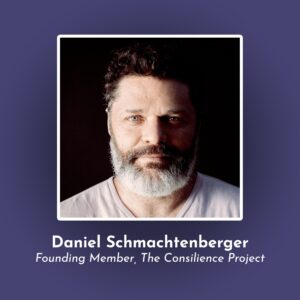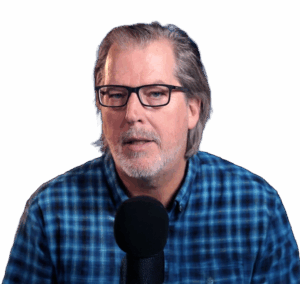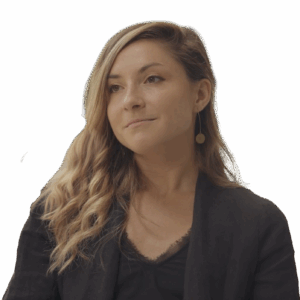
Ep 42 | Daniel Schmachtenberger
Daniel Schmachtenberger: “Bend not Break #4: Modeling the Drivers of the Metacrisis”
In this fourth installment of conversations with Daniel Schmachtenberger, we dive deeper into the nuances of humans using energy, materials and technology. Human’s ability to develop and use tools is one of our greatest strengths – yet has also led to increasing destruction of the natural world. How does technology intensify the binding effects of a world order based on growth? Is there any way out – or could global solutions just make the problem worse?
About Daniel Schmachtenberger
Daniel Schmachtenberger is a founding member of The Consilience Project, aimed at improving public sensemaking and dialogue.
The throughline of his interests has to do with ways of improving the health and development of individuals and society, with a virtuous relationship between the two as a goal.
Towards these ends, he’s had particular interest in the topics of catastrophic and existential risk, civilization and institutional decay and collapse as well as progress, collective action problems, social organization theories, and the relevant domains in philosophy and science.
In French, we have a motto that says that a simple drawing is often better than a long explanation. Jean-Marc Jancovici Carbone 4 President
That’s very understandable because with left atmosphere thinking, one of the problems is that you see everything as a series of problems that must have solutions. Iain McGilchrist Neuroscientist and Philosopher
We can’t have hundreds and hundreds of real relationships that are healthy because that requires time and effort and full attention and awareness of being in real relationship and conversation with the other human. Nate Hagens Director of ISEOF
This is the crux of the whole problem. Individual parts of nature are more valuable than the biocomplexity of nature. Thomas Crowther Founder Restor
Show Notes & Links to Learn More
Download transcript00:40 – Daniel Schmachtenberger info + TGS episodes part 1 and part 2 and part 3 + Overview of Nate’s story: Animated videos, Economics for the Future – Beyond the Superorganism
03:02 – Maximum Power Principle
05:13 – Superorganism
08:13 – Biodiversity loss, climate change, ocean acidification
11:37 – Ecological economics + the problems with GDP
14:03 – Metcalfe’s Law
14:14 – Limited Liability Company
16:39 – China taking Tibet, Colonial genocide of Native Americans
21:31 – Regulation on cigarettes and reduction in people who smoke
21:58 – Companies knew health effects of smoking for a long time
22:20 – There is no industry that doesn’t need energy
22:42 – CFCs regulation and the ozone
25:42 – Germany importing coal and cutting down old-growth forests
26:26 – Brazil cutting down rainforests for soybean industry
39:31 – Pareto Distribution
41:41 – If you factored in the cost of all externalities, no industry would be profitable
46:20 – Mutation and evolution
48:45 – Other animals use tools
50:05 – Humans are able to use abstractions to develop tools
52:08 – Humans are ultrasocial
52:15 – Jonathan Haidt The Righteous Mind
54:04 – Dunbar’s number
56:40 – Language was a major tool for humans
57:36 – Agrarian Revolution
1:01:53 – Pinker and Rosling Narrative
1:02:15 – Positive, Negative, and Zero Sum
1:05:01 – The 4th Industrial Revolution
1:06:05 – Fossil fuels provide the equivalent of 500 billion human workers
1:06:45 – Human population growth
1:09:15 – The origin of banking, interest, and modern monetary system
1:11:08 – Lithium 900% more costly, Olivia Lazard
1:15:32 – Online Slave Calculator
1:16:00 – Gini Coefficient
1:23:45 – Group Selection
1:43:15 – Jevons Paradox
1:46:25 – Financial musical chairs moment
1:47:28 – Human migration is fixed from climate effects
1:50:25 – Francis Fukuyama and others – Russia collapse isn’t far away
1:52:38 – We use social sorting mechanisms to solve physical world problems
1:57:42 – Lawrence Lessig
1:57:45 – Rank Choice Voting, Gerrymandering, Campaign Finance Reforms
1:58:15 – B Corp Legislation
2:05:40 – Porcupine Tree







